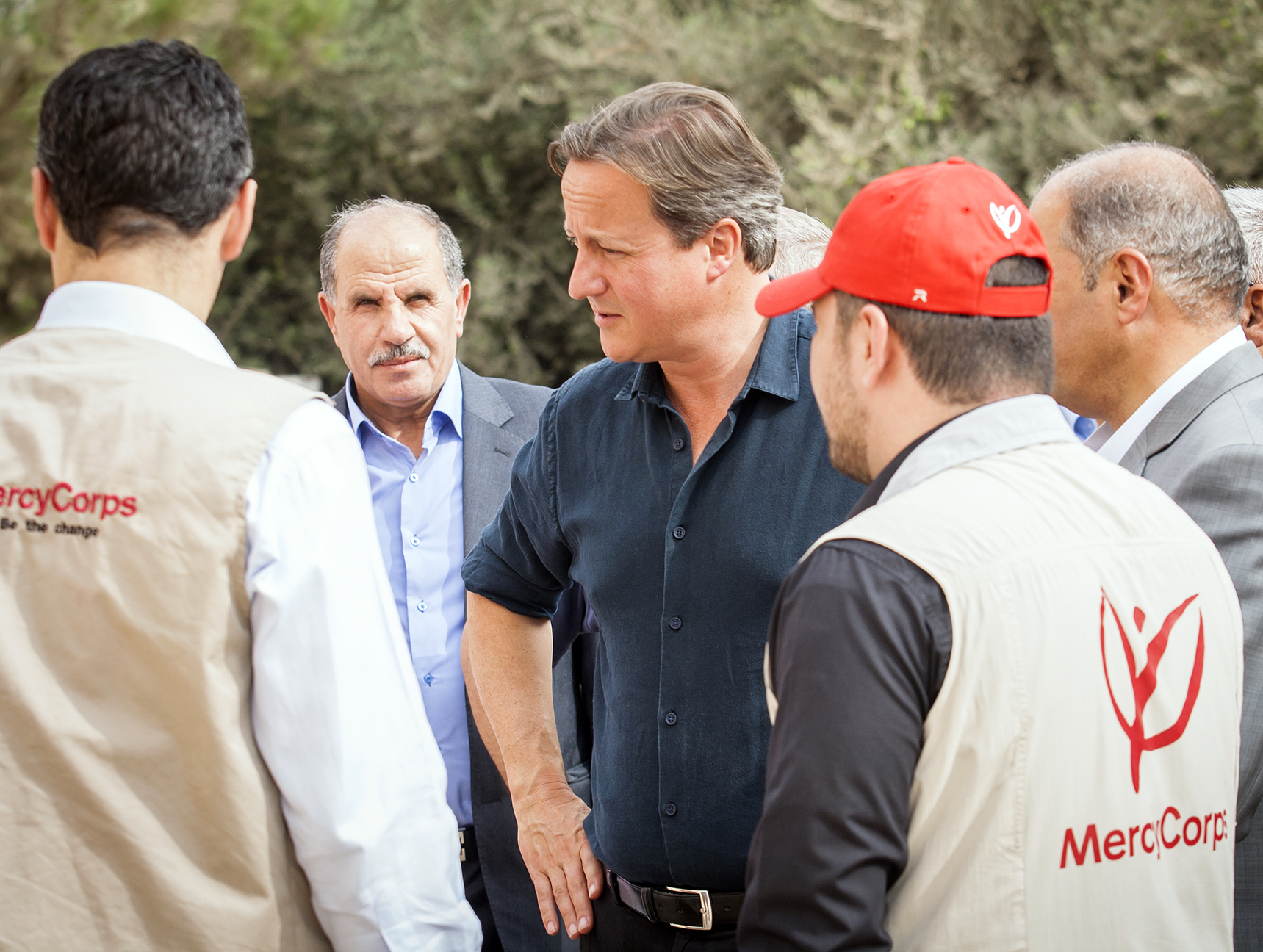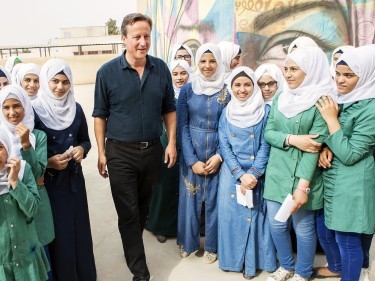As thousands continue to flee war-torn Syria, Laura Redpath identifies the troubles people are facing in refugee camps and the steps being taken to help tackle the crisis
Azraq refugee camp in Jordan has a population of 19,000. Among those who have fled their homes, carrying only what strength will allow on their backs, are two 15-year-old boys. One has a keen interest in maths and would like to become a teacher, while the other is fascinated by science and would love to pursue a career in engineering. But neither have faith in their dreams coming true.
Although they appreciate the security the camp offers, the young boys are aware of a lack of future.
“The things these children have been through is something no one should have to see,” said Ali MacLeod, who this week met the pair during a visit to Jordan with Mercy Corps, the organisation she works for. Speaking of her shock at what she heard, she said: “To hear they have these dreams about studying and being a productive member of society, but not knowing how it could ever happen, is just heart breaking.”
The Syrian Civil War broke out in 2011 and there are now more than 4million refugees in Syria’s neighbouring countries. The young boys in Azraq were just 11 when the conflict began.
“The boys told me about how they would be putting graffiti on the walls and if the police caught them, they would have their fingernails taken out,” said Ali. “As things worsened they would hear barrel bombs dropping and they became scared to leave the house. They would be scared that every time their parents left to go and get food, they wouldn’t come back. To hear them say it so matter-of-factly was terrible.”
Ali, 36, is the director of fundraising and marketing in the European division of Mercy Corps, which has been involved in the Syria crisis since it began. The international humanitarian development organisation has 4,000 members in more than 40 countries and strives to give those in complex crisis a hand up, rather than a hand out.
The camp Ali – a former fundraiser for Aberdeen University – is visiting sits on a 15km stretch in northern Jordan. Its houses are made of white corrugated iron and the heat, even in the beginning of autumn, is unbearable. It has the capacity to hold 120,000 refugees, but its population today sits at 19,000.
“I’ve never seen anything like it,” said Ali. “People don’t want to be there because it’s so isolated. There is water and electricity at the camp and in terms of sanitation, it’s well serviced, but people aren’t able to work. They are sitting bored, idle and feeling hopeless about their future.
“Resources are so stretched and Jordanians have welcomed Syrians, they’ve been such tremendous hosts. But as the crisis goes on, there’s an increased need for rubbish facilities, water and schooling.
“Mercy Corps works in the communities and brings them together to identify common issues to develop programmes that will increase local capacity.”
IS HELP AT HAND?
One of the biggest issues refugees face is not knowing what tomorrow, next month, or even the next decade has in store.
As pressure continues to fall on the UK and European governments to take action, Prime Minister David Cameron visited a school in Jordan’s Zaatari village on Monday, which Mercy Corps is extending to help give Syrian and Jordanian girls an education.
“If they don’t have an education they become a lost generation as they don’t have the skills needed to develop,” said Ali.
“What we are doing supports work in the region. We have a team in Greece to look at the best way to help those arriving in Kos and we are ramping up operations in Turkey to work with refugees there. The UK and European governments are looking at what they can to help the influx coming into other parts of Europe.”
THE CASE IN SCOTLAND
A small number of Syrian refugees have already been resettled in Scotland, and local authorities are in discussions with the Home Office about accepting more.
Last night, the first meeting of the Argyll and Bute Refugee Resettlement Group took place to draw up an action plan on how people from Syria can be resettled in local communities.
Council leader Dick Walsh said: “Everyone is aware of the harrowing images dominating the media over recent weeks, showing the plight of refugees frantically struggling to escape terror, destitution and the constant fear of death in Syria. Many of us have received representations from people in our communities asking what can be done to help them – and that question has undoubtedly dominated our own minds, too.
“With hundreds of thousands of people caught in the most desperate of all situations, it is time for action, and that is why Argyll and Bute has joined other Scottish local authorities in offering assistance. The chief executive has been in contact through Cosla to signal our willingness to get involved and offer whatever support we can. As a starting point, at least 20 families will be offered housing and support in the area, with the possibility of more in the future. Argyll and Bute will be offering these people the opportunity of a better life at a time when they most need it.”
Jim Savage, Aberdeenshire Council chief executive, said he was also committed to easing the plight of refugees seeking protection from persecution.
He added: “We have received a great deal of interest from members of our communities asking us what support we are able to provide, and how they can support the wider humanitarian crisis.
“Officers from the council are speaking to colleagues in other agencies to consider a range of support including housing, education, and health. Our local response would involve working closely with our community planning partners, to ensure a coordinated response and provide all the necessary support for the refugees.”
Aberdeen City Council leader Jenny Laing was in Edinburgh on Thursday to talk directly with the government on the issue while Margaret Davidson, leader of Highland Council pledged to do whatever it can to offer practical support.
She said: “This is a wider and more complex issue than resettling people in the UK – Europe needs practical and sustainable solutions to the root cause as well as addressing the immediate needs and safety of people closer to their home country.”
MORE INFORMATION
Mercy Corps:
https://www.mercycorps.org.uk/
Blythswood: If anyone wishes to help they can text SYRI15 £5 to 70070 or donate at
The British Red Cross:
http://www.redcross.org.uk/

